READY TO GET STARTED?
REQUEST A FREE ESTIMATE
Fill out the form below or call (888) 466-7849 for a free, no-obligation estimate.
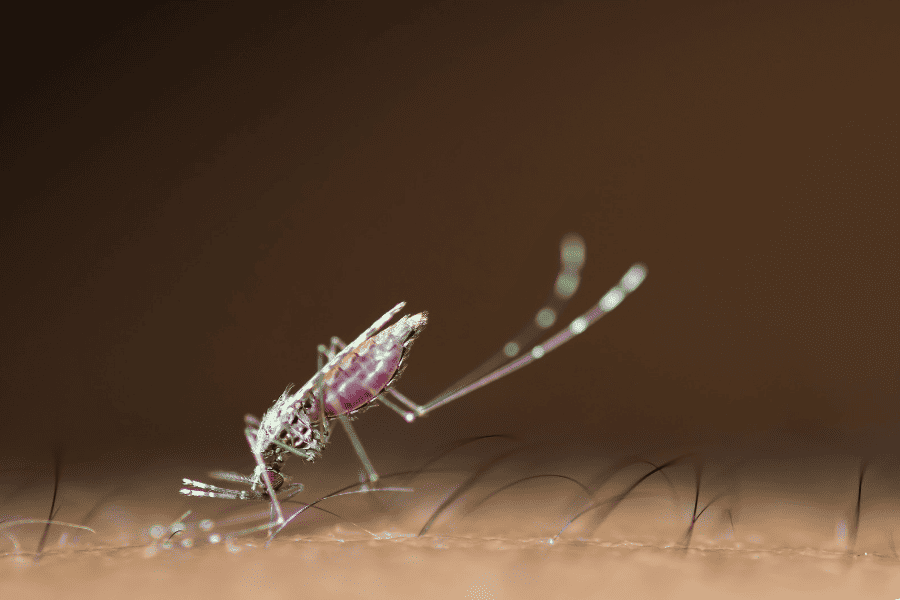
Summer is here, and so are mosquitoes. These pesky insects are known for their itchy, irritating bites, but have you ever wondered why mosquitoes bite in the first place? Let’s explore the reasons behind mosquito bites and share some tips for preventing and treating them.
Female mosquitoes are the ones that bite, and they do it to obtain the protein they need to develop their eggs. Mosquitoes are attracted to carbon dioxide and other chemicals that humans and animals emit when they breathe and produce heat and moisture. When a mosquito lands on your skin, it uses its proboscis (a long, needle-like mouthpart) to pierce your skin and suck your blood. As it feeds, it injects saliva into your skin, which can cause an allergic reaction and result in itchiness and swelling.
Preventing mosquito bites is the best way to avoid the discomfort they can cause. Here are some tips for keeping mosquitoes at bay:
If you have concerns about mosquitoes in your area, be sure to consult with your local mosquito control company for a customized mosquito prevention plan!
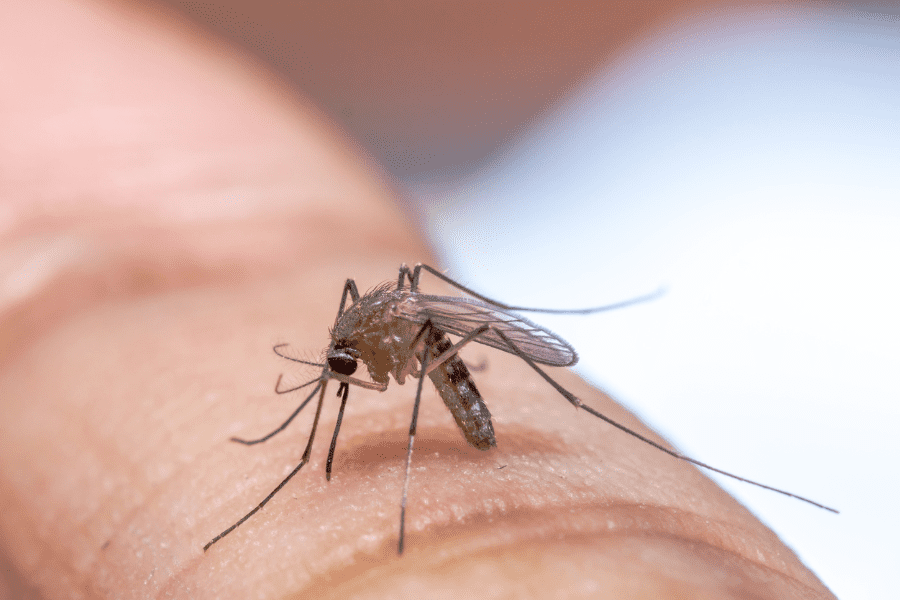
Living in the south, especially Laurens, South Carolina, is known to come with many pests once the weather begins to warm up. The extra humidity is heaven to pests, especially mosquitoes. Besides leaving behind itchy, red welts when they bite humans, they can also pose a serious health risk.
One of the best methods in preventing mosquitoes is by investing in a mosquito control program with your local green pest control company. There are many programs to choose from, but the eco-friendly choice is a green mosquito control option.
While a green mosquito program is effective at keeping mosquitoes away, it’s also important to eliminate any other mosquito attractants near your property. One thing you can begin doing is eliminating standing water around the property. Mosquitoes can lay eggs in as little as .5” of standing water, so ridding your property of that is a big help. Some ways to reduce standing water are by keeping your gutters clean, repairing poor drainage sites, and replacing bird bath water daily.
If you notice more mosquitoes than usual, it might be time to call your local pest control company. Their mosquito experts will be able to assist you with getting an eco-friendly mosquito program set up.
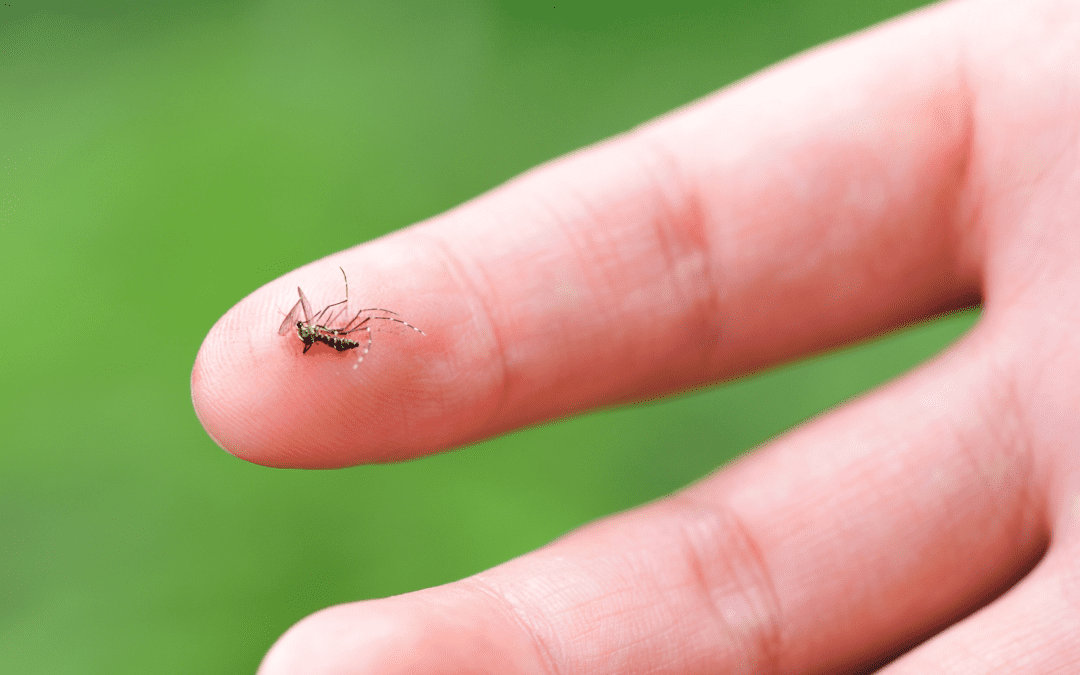
When you think of warmer weather, you imagine barbecues and beach trips. Unfortunately, these outdoor activities can be ruined by mosquito bites. Mosquitoes can put a damper on any summer fun, causing itchy red bumps and spreading diseases such as West Nile virus, Zika virus, and more within the U.S.
Most people are familiar with the maddening, itching sensation of a mosquito bite. But why do mosquito bites itch and why do they bite people in the first place? Let’s break it down.
Only female mosquitoes bite as they need protein to nourish their developing eggs. Biting mosquitoes use several different signals to locate a host, including carbon dioxide that we exhale, heat, and body odor. There are many factors that make some people appear more attractive to mosquitoes than others, including darker colored clothing, blood type, body size, being pregnant, sweat, and skin bacteria.
During the process of a mosquito biting you, it injects some of its own saliva which contains an anticoagulant and specific proteins. The anticoagulant prevents blood from clotting around the mosquito’s mouth. The proteins released by the mosquito trigger the body’s immune system, which releases histamine, a compound that increases cell count resulting in inflammation and swelling. The histamine also signals the nerves around the bite to cause it to itch.
If the mosquito problem is more than you can handle, then contacting your local pest control company might be the next step. as they will help set up the right prevention plan for your home.
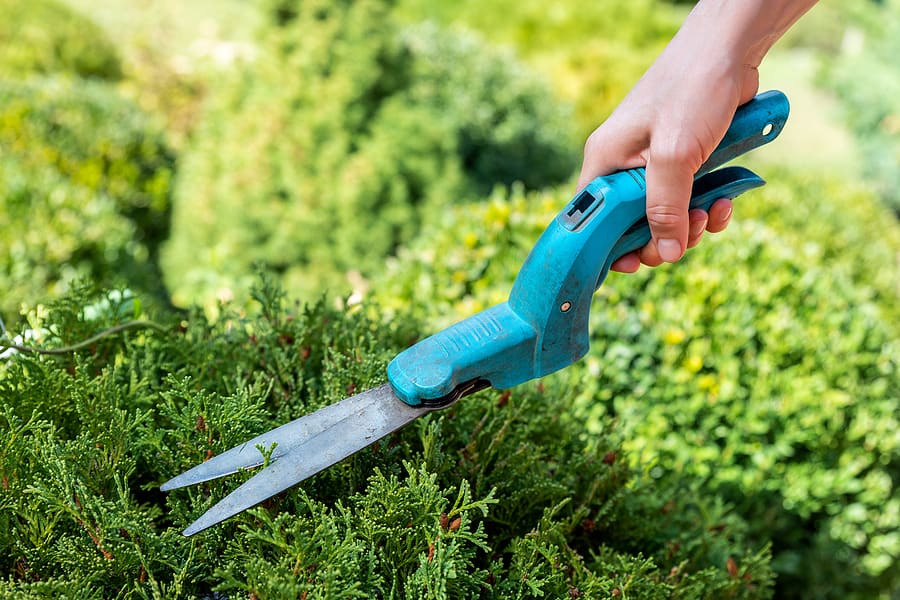
It’s safe to say that mosquitoes are a major nuisance pest during the spring and summer months. These pests can quickly ruin a backyard barbeque with their incessant swarming and biting of your guests! Before peak mosquito season hits and their activity increases, prep your yard early to prevent mosquitoes.
Eliminate Breeding Sites
The elimination of breeding sites is essential to preventing mosquitoes. Mosquitoes breed in stagnant water. If there has been a recent thunderstorm, it’s likely that objects in your yard are holding water. Items that can hold water include toys, buckets, outdoor pet bowls, and tire swings are all perfect places for mosquitoes to breed. Other objects meant to hold water, such as fountains or birdbaths, can also attract mosquitoes. Removing these objects or making sure to empty them of water will help eliminate the chance of mosquito infestations during the warmer months.
Clean Up Clutter
Leaves and debris after a thunderstorm can cause clogged gutters, resulting in the perfect place to breed mosquitoes. Ensure that your home’s gutters are clear of debris, especially after it’s been raining. Consider installing gutter guards that save you time, reduces the risk of injuries, and helps prevent mosquitoes and other pests. Mosquitoes also like to hide in tall grass and shrubbery. It’s crucial to maintain your grass and shrubs, keeping both trimmed and the grass cut short.
Call the Pros
Mosquito control and prevention can sometimes feel like a never-ending battle. A professional pest control company can provide homeowners with a customized prevention and treatment plan to help eliminate these pests. Being proactive and starting mosquito treatments now will help in controlling mosquitoes during peak season!
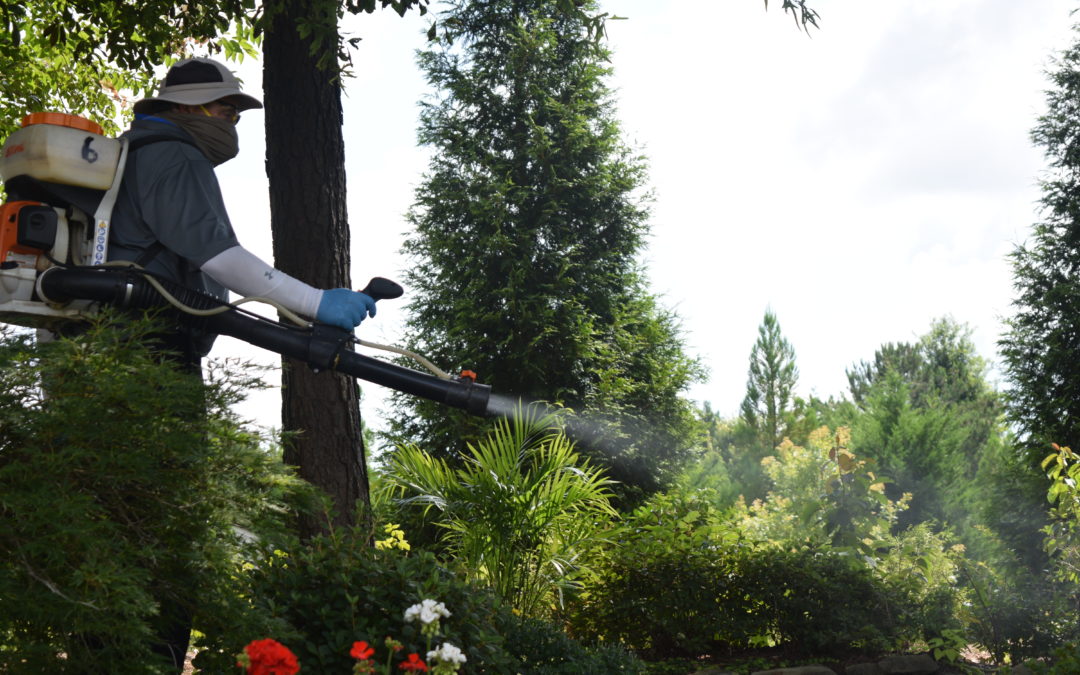
Mosquito season is right around the corner! Heat and humidity during these months combine to provide an ideal environment for mosquitoes to thrive. The season usually starts in the spring and peaks over the summer. Besides leaving behind itchy, red welts, these nuisance pests are dangerous to humans by vectoring serious diseases like Zika virus, West Nile virus, and chikungunya. Fortunately, there are several green pest control options you can utilize as an eco-friendly alternative to control mosquitoes. Here are 3 steps you can take for green mosquito control.
The first step to controlling mosquitoes is identifying and eliminating what attracts them in the first place. Mosquitoes will come around in search of two things: nesting sites and resting sites.
Where do mosquitoes breed? Every species of mosquito lays its eggs in water. While the type of water source may vary between species, it only takes a minute amount of water for mosquitoes to hatch and develop. Get rid of any potential breeding sites by:
Once mature, adult mosquitoes will often rest in shady areas that are protected from the wind. Some common resting sites include trees, shrubs, potted plants, patios, and front entryways.
Any time you can protect yourself from mosquito bites you should. Prevent mosquito bites by:
Yards and climates vary across the region so the effectiveness and longevity of mosquito treatments will vary from home to home. Regardless of where you live or what kind of home you have, a green mosquito control program can be effective at helping control mosquito populations. Green mosquito control utilizes eco-friendly products that are just as effective as traditional products.
A complete green reduction program includes monthly mosquito treatments during mosquito season. Green treatments use products that are derived from flowers and botanicals and area only applied to the areas where they are needed instead of over the entire yard. They are effective at reducing both adult and larvae populations.
The green mosquito reduction program includes an inspection to identify resting and nesting sites; larvacide and adulticides to target all aspects of the population; source reduction and elimination by removing any areas of standing water; and a service guarantee where they will come back between treatments if needed, usually at no cost.
If you have a problem with mosquitoes or any other pests, contact a professional pest control company who can provide you with a thorough inspection and the most up to date traditional pest control and green treatment options available for you.
Termites: Prevent Before They Infest!